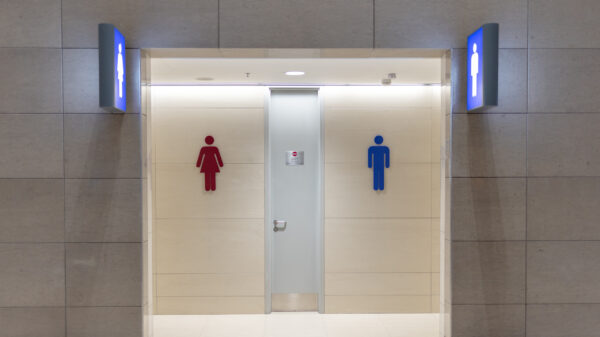Last Monday, $72 million in CARES Act funds originally designated for Alabama counties and cites was re-allocated by state officials and legislators to the state’s Unemployment Trust Fund at the recommendation of the Alabama Department of Finance.
This unanimous decision — made Monday by a six-legislator panel comprised of outgoing Senate President Pro Tem Del Marsh, House Speaker Mac McCutcheon and the Legislature’s four budget committee chairmen — reduced the budget for both cities and counties to a combined $178 million. That’s a reduction of 29 percent down from total allocation of $250 million.
Accounting for already reimbursed funds as of Jan. 17, $54 million remains for counties and $38 million for cities in available reimbursements, according to the state’s budget and expenditures dashboard for CARES act funds.
“The Association cannot express in strong enough terms its disappointment and dismay at today’s decision,” wrote Sonny Brasfield, executive director of the Association of County Commissions of Alabama, in an email to county leadership on Jan. 11. “For more than six months, counties have struggled with changing guidance, inconsistent responses and moving eligibility requirements. Many counties have expended funds based on email communication stating that items would be eligible for reimbursement only to learn today that funding has now been withdrawn without warning.”
In an email distributed to state legislatures, the Governor’s Office and State Finance Director Kelly Butler on Jan. 13, Brasfield insisted that the counties did not bring this decision on themselves, even if state officials, according to Brasfield, may have had the misapprehension that the counties had dropped the ball.
“Our concern is that it has been repeatedly said that counties missed deadlines, ignored guidance and were slow in filling out applications for reimbursements,” Brasfield said. “All of these statements and impressions are simply not accurate. Although we disagree with the decision to move this funding, we recognize the decision of the six-member committee was within the provisions of Act 2020-199. But it is important to me that you recognize your county officials and employees did not drop the ball.”
Butler released a memo Jan. 12, stating: “All reimbursement requests received by the Coronavirus Relief Fund office as of January 11, 2021, will be audited and processed in keeping with CARES Act Coronavirus Relief Fund policies and guidance,” and has said that additional reimbursement applications submitted after Jan. 11 by counties and cities would be considered if additional funding is made available, according to WSFA.
In an interview with APR, Brasfield expressed concerns that the legislators deciding to reallocate funding away from counties and cities were not aware that the Dec. 30 deadline for the state to spend CARES Act funds – which was extended to next year – was not the same deadline for counties and cities to apply for reimbursements.
“If you’re not an expert on the CARES act, then you probably jumped to the conclusion that counties drop the ball,” Brasfield said. “For the last nine months, we’ve operated knowing that any money that would be eligible to be reimbursed had to be expended before Dec. 30. We knew that was the deadline to expend money. There was never a deadline for when we had to request to be reimbursed. There’s part of me that believes that at least some of the legislators who were asked to make the decision didn’t understand that distinction.”
The Friday prior to the decision to transfer funds, the State Comptroller’s Office sent out an email shared by Brasfield stating: “There currently is not a deadline for submitting requests.” But he did append a request that applications be sent in as “quickly as possible” in January.
“We asked the administration to give us two weeks. We said ‘tell us what the deadline is and we’ll meet it,’” Brasfield said. “There was a decision made by the committee to move forward. The Act says the committee gets to do that, the committee did it. It’s over. We’ve got to try to move forward.”
The Finance Department has yet to reply to APR’s questions about whether the distinction between the deadline to expend funds and apply for reimbursements was explained to legislators.
“There are counties who made purchases, especially smaller counties, of things that will be very productive to have, that will help the safety of the citizens and the workers, that they simply couldn’t afford,” Brasfield said. “They made those purchases, many of them based on emails saying ‘yes, that’s an eligible purchase.’ My hope is they’re gonna find money to fulfill those requests.”
Brasfield also said he’s optimistic the new $1.9 trillion stimulus package proposed by President-elect Joe Biden will give counties two weeks to submit their reimbursement applications.
“To do anything else, in my opinion, would send a really negative message to county governments,” Brasfield said. “If the Legislature and the governor do not give priority to those counties from the state funding that might be coming, and if no [federal] funding earmarked for the state comes, then we got to find another solution.”
In early September, the state transferred $300 million originally allocated for state agencies to the Unemployment Trust Fund, in an effort to prevent immense tax hikes for businesses paying unemployment insurance taxes. The decision Monday likely stems from a similar desire to keep the tax rates where they stand for businesses.



















































